As the culinary landscape continues to evolve, so does the kitchen appliances industry, with innovative solutions emerging to meet the diverse needs and preferences of consumers. Among these advancements, bespoke manufacturing has carved out a niche in the contact grill market, offering tailored appliances that cater to individual tastes and cooking styles. This article explores the intricate details of the bespoke contact grill market, shedding light on the challenges, opportunities, and the stories of successful manufacturers that are shaping this specialized sector.
Introduction to Contact Grill Market Trends
In the ever-evolving landscape of kitchen appliances, the contact grill has emerged as a favorite among culinary enthusiasts and busy households alike. This compact and versatile cooking tool has seen a surge in popularity, driven by its ability to produce deliciously seared and juicy meats, vegetables, and even desserts. This section delves into the current market trends shaping the contact grill industry.
The contact grill market is witnessing a significant growth spurt, primarily due to the increasing health consciousness among consumers. With a focus on grilling over frying, these appliances offer a healthier alternative for those looking to reduce their fat intake while still enjoying the flavor of grilled foods. The convenience factor cannot be overlooked either; contact grills are compact, easy to use, and clean, making them a staple in many modern kitchens.
One of the most notable trends in the contact grill market is the emphasis on innovation. Manufacturers are continuously pushing the boundaries by integrating advanced features such as non-stick surfaces, adjustable heat settings, and even digital controls. These technological advancements not only enhance the cooking experience but also cater to a wide range of culinary preferences and dietary restrictions.
The market is also seeing a rise in eco-friendly and sustainable products. Consumers are increasingly looking for appliances that align with their environmental values, and contact grill manufacturers are responding by offering energy-efficient models and using recycled materials in their production processes.
In Europe, the contact grill market is particularly robust, with a strong emphasis on quality and design. European consumers are willing to invest in high-end, premium products that offer superior performance and durability. The market is segmented into various categories, including portable grills, countertop grills, and built-in grills, each catering to different consumer needs and preferences.
North America, on the other hand, has a diverse market with a blend of traditional and modern contact grills. The USA and Canada have seen a surge in the demand for electric grills, which are favored for their ease of use and consistent heat distribution. The market is also witnessing a growing interest in infrared contact grills, which are known for their quick cooking times and ability to lock in flavors.
The rise of social media and online cooking communities has also played a pivotal role in shaping the contact grill market. Influencers and chefs are continually showcasing their culinary creations using contact grills, driving consumer interest and demand. This trend has led to a surge in DIY cooking and home entertaining, further fueling the contact grill market.
Bespoke manufacturing has carved out a niche within the contact grill industry, offering consumers the opportunity to tailor their appliances to their specific needs and preferences. Customization can range from choosing different grill plates and accessories to selecting unique colors and finishes. This personalized approach not only satisfies the consumer’s desire for a unique product but also addresses the growing demand for personalized experiences in various industries.
As the contact grill market continues to grow, so does the competition among manufacturers. To stay ahead, companies are focusing on innovation, sustainability, and customer service. By understanding market trends and consumer behaviors, manufacturers can develop products that not only meet but exceed expectations.
In conclusion, the contact grill market is dynamic and ever-changing, with a focus on health, innovation, and customization. As consumer preferences evolve, so too will the products and services offered by manufacturers. The future of the contact grill market looks promising, with endless possibilities for growth and innovation.
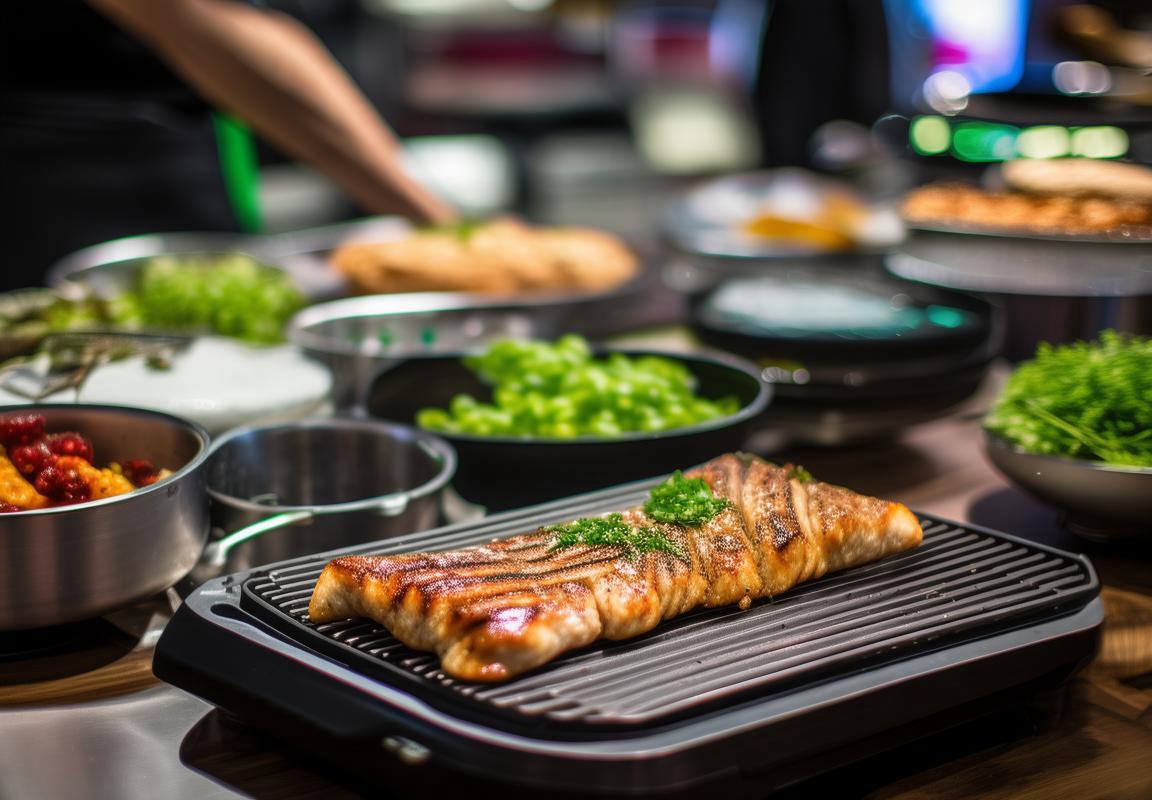
European Contact Grill Market Overview
The European contact grill market has experienced a significant surge in popularity, driven by a combination of health-conscious consumers, culinary innovation, and the convenience it offers over traditional grilling methods. With an array of brands and models available, the market is witnessing a diverse range of trends that are shaping its growth trajectory.
In recent years, there has been a notable shift towards healthier cooking options, and contact grills have capitalized on this trend. Consumers are increasingly aware of the benefits of cooking with less oil, which contact grills excel at, thereby reducing calorie intake and fat content in food. This focus on health has propelled the market forward, with many European households adopting contact grills as a staple in their kitchen appliances.
Market segmentation in the European contact grill market is quite diverse. There are several categories, including portable grills, countertop grills, and built-in grills, each catering to different consumer needs. Portable grills, for instance, are popular among campers and outdoor enthusiasts, while countertop models are favored for their ease of use and compact size. Built-in grills, on the other hand, are a luxurious addition to kitchen appliances, offering a premium grilling experience.
Consumer preferences in Europe are also quite varied. The German market, for example, is known for its preference for high-quality and durable appliances. Here, contact grills are often sought after for their robust build and advanced features. In contrast, the Italian market may lean towards more aesthetic designs and innovative cooking technologies. This regional variation in preferences reflects the dynamic nature of the European contact grill market.
The North European countries, such as the UK, Sweden, and the Netherlands, have shown a particular interest in smart and connected kitchen appliances. Contact grills that offer Bluetooth connectivity or integration with smart home systems are gaining traction in these markets. This trend is driven by the desire for convenience and the ability to control cooking settings remotely.
In France, there is a strong focus on gourmet and specialty cooking, which has led to the rise of contact grills with adjustable temperature settings and multiple cooking surfaces. These grills allow users to experiment with different cooking techniques, from searing steaks to grilling vegetables, all in one appliance.
The European contact grill market is also witnessing the emergence of eco-friendly products. As sustainability becomes a key concern for consumers, manufacturers are responding by offering contact grills made from recycled materials and energy-efficient designs. This environmental consciousness is likely to influence future market developments.
Distribution channels have also evolved in the European contact grill market. Online sales have seen a significant increase, with e-commerce platforms becoming a major source of revenue for manufacturers. This shift is attributed to the convenience of online shopping and the ability to compare different models and features easily.
However, despite the growth and diversification of the market, challenges remain. One of the most significant is the price point. Contact grills can be quite expensive, and while the premium segment is doing well, there is also a need for more affordable options that cater to the broader consumer base.
Additionally, the competition within the market is fierce. Established brands are constantly innovating and launching new products, while new entrants are looking to carve out a niche with unique features or design. This competition is driving innovation and pushing the boundaries of what contact grills can offer.
In conclusion, the European contact grill market is characterized by a mix of health trends, consumer preferences, and technological advancements. As the market continues to grow, it will be interesting to see how these factors shape the future landscape of contact grills in Europe.

North American Contact Grill Landscape
The North American contact grill market has seen a surge in popularity, driven by a growing health consciousness and a preference for outdoor cooking experiences. As families and individuals seek versatile and efficient cooking solutions, contact grills have become a staple in many kitchens across the continent. Let’s delve into the key aspects of this dynamic landscape.
Grill Technology InnovationsThe North American contact grill market is witnessing a wave of technological advancements. High-tech features like digital temperature control, programmable cooking settings, and integrated sensors are becoming standard. Smart grills that can connect to smartphones and offer remote control are also gaining traction, reflecting the region’s tech-savvy consumer base.
Market SegmentationThe market is segmented based on product types, such as flat-top, round, and infrared grills. Flat-top grills are popular for their even heating and large cooking surface, while round grills offer a more compact and portable option. Infrared grills are valued for their quick cooking times and minimal smoke production. The market also caters to various price points, from budget-friendly models to premium, high-end brands.
Consumer PreferencesConsumers in North America are gravitating towards contact grills that offer a balance between convenience and performance. The demand for easy-to-clean surfaces, durable construction, and versatile cooking capabilities continues to rise. Moreover, there’s an increasing interest in eco-friendly and energy-efficient appliances, reflecting broader environmental concerns.
Outdoor Cooking CultureNorth America, with its vast array of climates and seasons, has a rich outdoor cooking culture. Whether it’s backyard barbecues, tailgating at sports events, or enjoying a beachside cookout, contact grills are well-suited for these settings. The market is influenced by the need for grills that can withstand various weather conditions and provide consistent results.
Retail ChannelsThe distribution channels for contact grills in North America are diverse, ranging from specialty cooking stores to mass retailers and online platforms. Online sales have seen significant growth, driven by the convenience and the ability to access a wider range of products. Additionally, brick-and-mortar stores often offer in-store demonstrations and personalized consultations to help customers make informed purchasing decisions.
Competitive LandscapeThe competitive landscape is characterized by both established brands and emerging players. Name brands like George Foreman, Cuisinart, and Weber dominate the market with their reputation for quality and reliability. However, smaller, niche brands are also carving out a space with unique features and innovative designs. The competition is fierce, with companies constantly striving to differentiate their products and attract consumers.
Regulatory ComplianceManufacturers must navigate a complex web of regulations, including safety standards, emissions guidelines, and labeling requirements. The North American market’s stringent regulatory environment demands adherence to international and local safety codes, which can affect product design and manufacturing processes.
Consumer Health and WellnessHealth and wellness trends play a significant role in the contact grill market. With a focus on grilling healthy proteins and vegetables, consumers are looking for grills that minimize smoke and fat drippings. The demand for non-stick coatings, ceramic surfaces, and grilling mats has increased, as they help maintain food quality and reduce the need for added fats.
Marketing StrategiesMarketing efforts in the North American contact grill market are multifaceted. Brands use social media, influencer partnerships, and cooking demonstrations to showcase the benefits of their products. The emphasis is often on the ease of use, health advantages, and the social aspect of cooking and sharing meals.
The North American contact grill landscape is shaped by a combination of technological advancements, consumer preferences, and cultural trends. As the market continues to evolve, manufacturers must stay attuned to the latest innovations and consumer demands to maintain a competitive edge.
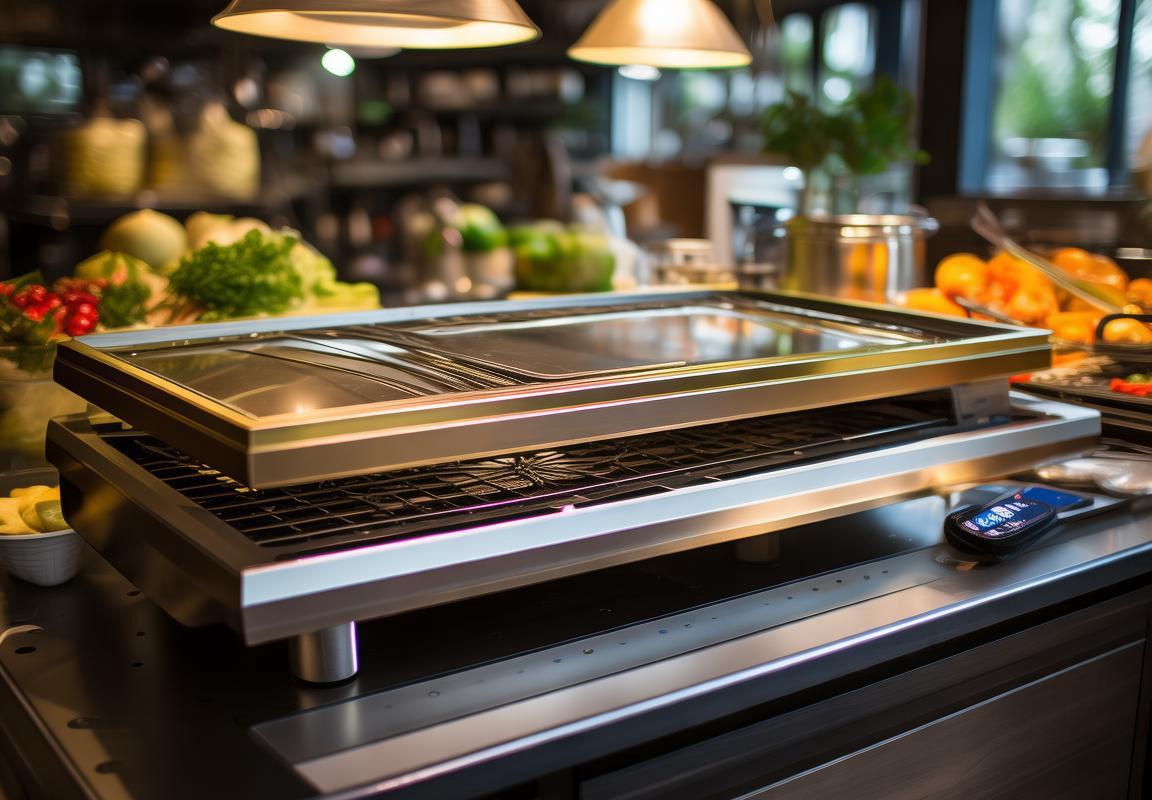
Bespoke Manufacturing: A Niche Within the Contact Grill Industry
In the bustling world of kitchen appliances, bespoke manufacturing stands as a beacon for those seeking unique, tailor-made solutions. Within this realm, the contact grill niche has gained significant traction, offering customers the opportunity to craft their perfect cooking companion. Let’s delve into the intricacies of bespoke manufacturing within the contact grill industry.
The Art of Customization
Customization is at the heart of bespoke manufacturing. It allows consumers to choose from a plethora of options, from the size and shape of the grill to the material and finish. Whether it’s a sleek, stainless-steel design for a modern kitchen or a rustic, cast-iron finish for a vintage look, bespoke contact grills cater to a wide array of aesthetic preferences.
Tailored Features for Enhanced Cooking
Bespoke grills often come with a suite of features designed to enhance the cooking experience. Users can opt for different cooking surfaces, such as non-stick coatings or grilling plates, which can cater to various types of food preparation. Additional features might include adjustable heat settings, digital temperature controls, and even customizable timers, ensuring that every meal is cooked to perfection.
Market Demand and Consumer Trends
The demand for bespoke contact grills has been on the rise, driven by consumers who value personalization and quality. Millennial and Gen Z home chefs are particularly drawn to these products, as they align with their desire for unique, high-quality, and functional items. This segment of the market is also highly responsive to sustainable and eco-friendly materials, further shaping the bespoke manufacturing landscape.
The Bespoke Manufacturing Process
The process of creating a bespoke contact grill is a meticulous one. It begins with the selection of materials, which can range from traditional metals like stainless steel and aluminum to more innovative options like ceramic and titanium. Once the materials are chosen, the design phase begins, involving close collaboration between the manufacturer and the customer to ensure that every detail is just right.
Innovation and Technology Integration
Innovation plays a crucial role in bespoke manufacturing. Manufacturers are constantly pushing the boundaries of what’s possible, integrating advanced technologies into their products. This might include smart features that allow grills to connect with smartphones or cookware that can adapt to different types of heat sources, offering unparalleled versatility.
The Challenges of Bespoke Manufacturing
While the bespoke market offers many benefits, it also comes with its own set of challenges. One of the primary hurdles is the cost. Bespoke products tend to be more expensive due to the custom design and materials involved. Additionally, the production process is often more complex and time-consuming, requiring skilled artisans and a high degree of precision.
The Future of Bespoke Contact Grills
Looking ahead, the future of bespoke contact grills seems promising. As technology continues to evolve, we can expect to see even more innovative designs and features. The integration of artificial intelligence and machine learning could lead to grills that not only cook but also learn from the user’s preferences over time, offering an even more personalized cooking experience.
The Bespoke Experience
Ultimately, the bespoke experience is about more than just owning a high-quality grill. It’s about the journey—the process of crafting a piece that is as unique as the individual who will use it. Bespoke contact grills offer a level of customization that standard kitchen appliances simply cannot match, making them a sought-after item for those who appreciate the art of cooking and the joy of creating something truly their own.
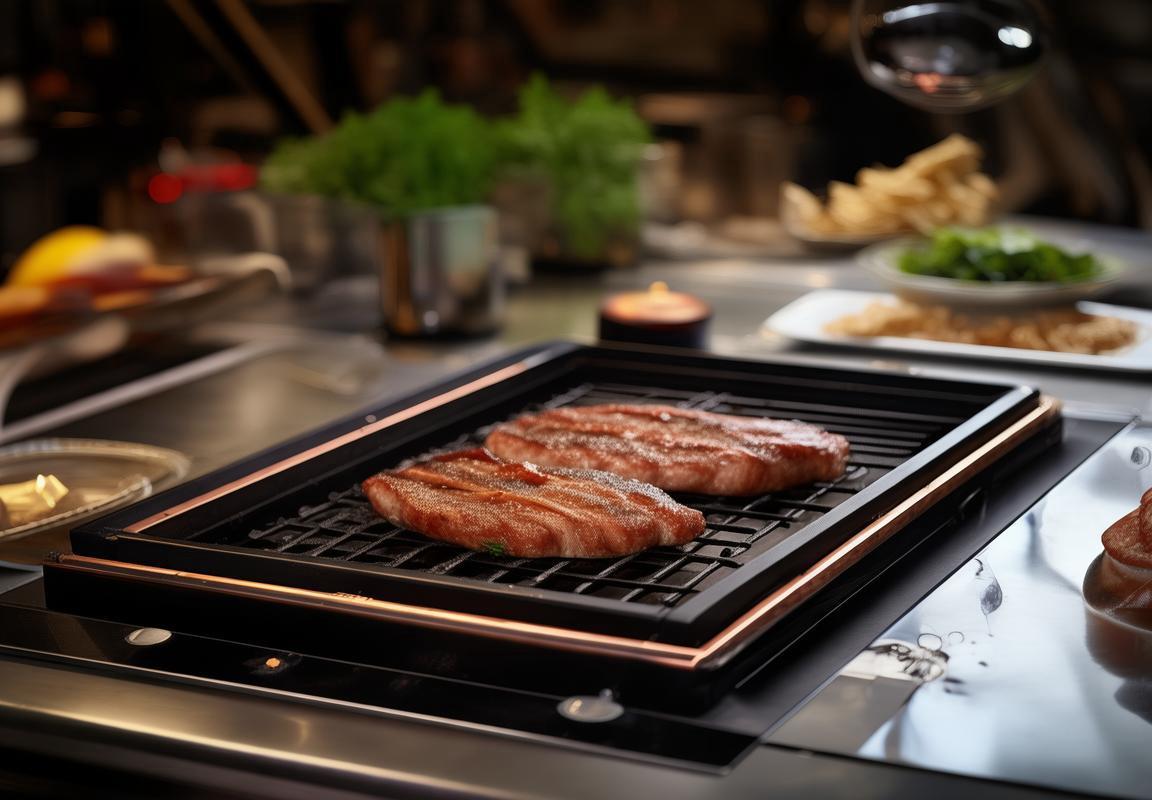
The Role of Bespoke Manufacturers in Market Expansion
In the dynamic world of contact grill manufacturing, bespoke manufacturers play a pivotal role in driving market expansion. Their unique approach to customization and personalization has become a beacon for consumers seeking tailored solutions. Here’s how these specialized manufacturers are making their mark:
Bespoke manufacturers offer a level of customization that mass-produced contact grills cannot match. They cater to the diverse needs of consumers, ensuring that each product is not just a tool but a reflection of personal preferences. This level of attention to detail can range from adjusting the size and shape of the grill to incorporating specific features that enhance cooking experiences.
The market for contact grills has seen a surge in demand for unique and innovative products. Bespoke manufacturers are at the forefront of this trend, introducing new designs and functionalities that resonate with niche markets. Their ability to create custom solutions for specific customer segments allows them to tap into underserved areas of the market.
Personalization goes beyond just the design of the grill. Bespoke manufacturers often work closely with clients to understand their specific cooking habits and preferences. This collaborative process leads to the creation of grills that are not only aesthetically pleasing but also highly functional, making them a staple in professional kitchens and gourmet homes alike.
One of the key advantages of bespoke manufacturing in the contact grill industry is the opportunity for innovation. Manufacturers can experiment with materials, heating elements, and cooking surfaces to create products that are not just different but also superior in performance. This focus on innovation can lead to breakthroughs that set new standards in the market.
As the market expands, so does the need for efficient supply chains. Bespoke manufacturers have to navigate complex logistical challenges to ensure that their custom products reach customers on time. Their ability to manage these complexities effectively can be a significant differentiator, especially when it comes to international markets.
The rise of e-commerce has opened up new avenues for bespoke contact grill manufacturers. Online platforms allow them to reach a global audience, showcasing their unique offerings and building a community of customers who appreciate craftsmanship and uniqueness. This digital presence is crucial for market expansion, as it broadens their reach and increases brand visibility.
In the realm of sustainability, bespoke manufacturing stands out. These manufacturers often use eco-friendly materials and production methods, aligning with the growing consumer demand for environmentally conscious products. By offering sustainable options, they not only cater to eco-conscious consumers but also contribute to the overall market growth through responsible practices.
Customer loyalty is another area where bespoke manufacturers excel. The personalized nature of their products fosters a strong bond with customers, leading to repeat business and positive word-of-mouth. This loyalty is invaluable for market expansion, as satisfied customers become brand ambassadors, attracting new customers through recommendations.
The competitive landscape of the contact grill industry is constantly evolving. Bespoke manufacturers must stay ahead of the curve by anticipating market trends and adapting their offerings accordingly. This agility allows them to capitalize on new opportunities, whether it’s through introducing new features, targeting emerging markets, or responding to regulatory changes.
In conclusion, bespoke manufacturers are not just contributors to the contact grill industry; they are architects of its future. Their focus on customization, innovation, sustainability, and customer loyalty is reshaping the market landscape. As the industry continues to expand, these manufacturers are poised to lead the way, driving growth and setting new benchmarks for the entire sector.
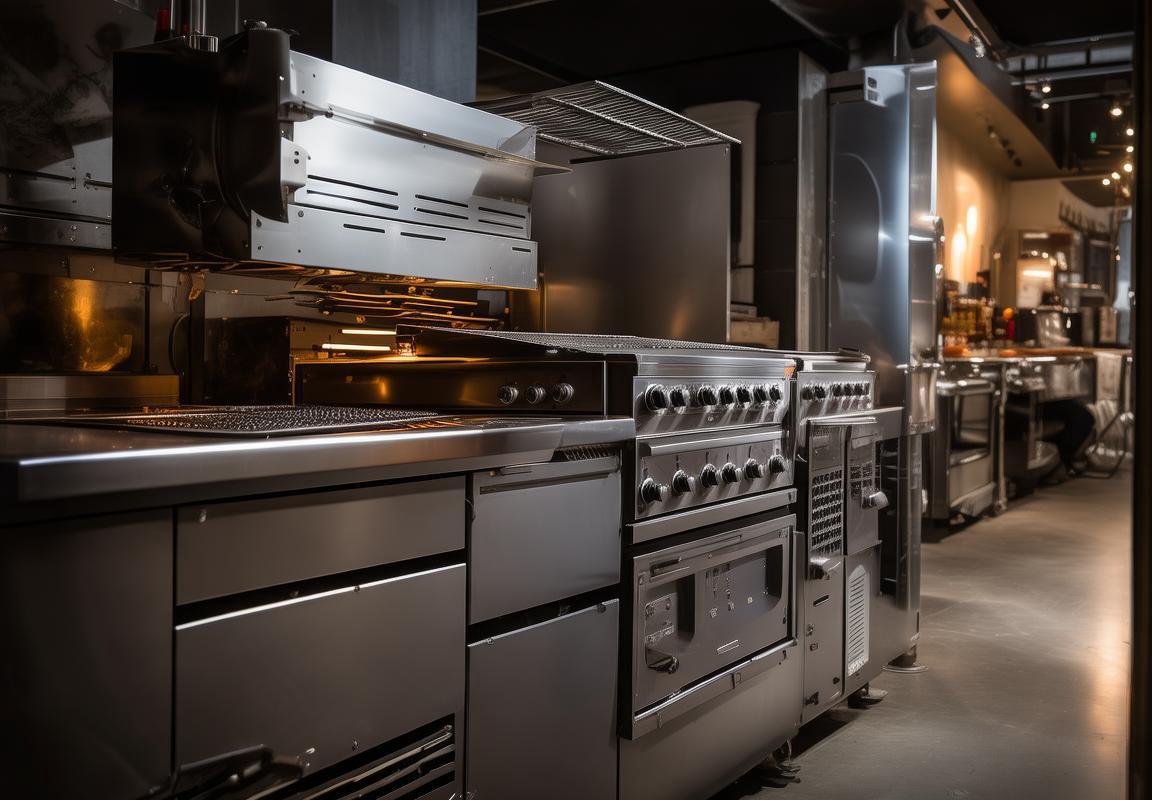
Challenges and Opportunities for Bespoke Contact Grill Manufacturers
In the niche of bespoke contact grill manufacturing, challenges and opportunities coexist, shaping the trajectory of businesses in this specialized field. Navigating these complexities is crucial for companies aiming to thrive and carve out a unique position in the market.
Understanding the Customization DemandCustomization is the heart of bespoke manufacturing, and the demand for tailored contact grills reflects a shift in consumer preferences. Clients are not just looking for a functional appliance but one that fits their specific needs, whether it’s size, design, or unique features. This shift requires manufacturers to invest in advanced design software and materials that can accommodate these diverse requirements.
Supply Chain ManagementOne of the primary challenges for bespoke contact grill manufacturers is managing a complex supply chain. Unlike mass-produced items, bespoke grills often require specialized parts and materials that are not readily available off the shelf. Ensuring a steady supply of these components without compromising on quality or cost is a delicate balance. Additionally, the just-in-time manufacturing process necessitates a robust supply chain that can respond quickly to changes in customer orders.
Quality Control in Bespoke ProductionMaintaining consistent quality in bespoke manufacturing is a significant challenge. Each product is unique, and quality control must be meticulously applied to every aspect of the production process. From material selection to assembly and final inspection, the manufacturer must ensure that each contact grill meets or exceeds customer expectations. This rigorous quality control can add complexity and cost, but it is essential for building a reputation for excellence.
Market DifferentiationDifferentiating a bespoke contact grill from competitors is a constant challenge. With the rise of customizability across various consumer goods, standing out requires a strong brand identity and a clear value proposition. Manufacturers must invest in marketing that highlights the unique aspects of their products, such as craftsmanship, material innovation, or personalized service. This differentiation is not just about the product itself but also about the entire customer experience.
Cost ManagementThe bespoke nature of manufacturing often means higher costs due to the need for specialized materials and labor. Balancing these costs with the premium price point that customers are willing to pay is a challenge. Bespoke manufacturers must find innovative ways to reduce overheads, streamline production processes, and optimize inventory management without compromising the quality or customization that their customers demand.
Evolving Consumer TrendsConsumer trends in the kitchen appliances industry are constantly evolving. Bespoke contact grill manufacturers must stay abreast of these changes to anticipate future demands. This includes embracing new technologies, materials, and design concepts that can offer competitive advantages. The ability to pivot quickly based on emerging trends is crucial for maintaining relevance in the market.
Regulatory ComplianceNavigating the regulatory landscape is another challenge. Bespoke contact grill manufacturers must comply with safety standards, certifications, and import/export regulations. Ensuring that each product meets these requirements can be complex, especially when dealing with a wide range of custom configurations. Compliance is not only about legal requirements but also about building trust with customers who value safety and reliability.
Global ExpansionFor bespoke contact grill manufacturers looking to expand, entering new markets presents both opportunities and challenges. Adapting to different cultural preferences, understanding local regulations, and establishing distribution networks in new regions are critical steps. The opportunity lies in tapping into markets where customizability is highly valued, but this expansion must be carefully planned to avoid pitfalls.
Sustainability and Eco-friendly PracticesAn increasing number of consumers are conscious of sustainability and eco-friendly practices. Bespoke contact grill manufacturers must consider how their products are produced and packaged. Implementing green manufacturing processes, using sustainable materials, and minimizing waste can enhance a brand’s image and attract environmentally conscious customers.
Training and DevelopmentThe success of bespoke manufacturing hinges on skilled labor. Investing in training and development programs for employees is essential. This not only ensures that the production process runs smoothly but also allows the manufacturer to stay competitive by fostering a culture of continuous improvement and innovation.
In conclusion, the bespoke contact grill market offers unique challenges and opportunities. Manufacturers that can effectively manage the complexities of customization, supply chain, quality control, and market differentiation will be well-positioned to capture the growing demand for personalized kitchen appliances. By embracing innovation, sustainability, and continuous training, these businesses can navigate the evolving landscape and achieve long-term success.

Case Studies: Successful Bespoke Contact Grill Manufacturers
In the world of bespoke contact grill manufacturing, there are several companies that have carved out a niche for themselves by offering unique, tailored solutions to customers. Here are some case studies of successful bespoke contact grill manufacturers, showcasing their strategies and the impact they’ve made in the industry.
-
Customized Design and Engineering ExpertiseOne such company, GrillCraft, has gained a reputation for its intricate design work and engineering prowess. They’ve successfully catered to chefs and home cooks alike by offering grills that are not only aesthetically pleasing but also highly functional. GrillCraft’s bespoke grills often feature custom-built cooking surfaces, innovative heat distribution systems, and unique features like adjustable flame tamer bars, which have become a hallmark of their brand.
-
Sustainability and Eco-Friendly SolutionsEcoGrill Solutions has made a name for itself by focusing on sustainable and eco-friendly bespoke contact grills. The company has developed a range of grills that are crafted from recycled materials and are designed to minimize energy consumption. Their commitment to the environment has resonated with a growing market segment that values sustainability, and they’ve seen a surge in demand for their eco-conscious products.
-
Targeting Specific Market SegmentsBespokeGrill Inc. has identified and targeted specific market segments with their tailored contact grill offerings. For instance, they’ve developed a line of grills designed for outdoor enthusiasts, with features like portable designs, durable materials, and easy-to-clean surfaces. By focusing on niche markets, such as RV owners or beachgoers, BespokeGrill has been able to establish a loyal customer base that appreciates the specialized nature of their products.
-
Innovative Technology IntegrationTechGrill Innovations has taken bespoke manufacturing to the next level by integrating cutting-edge technology into their contact grills. Their grills are equipped with smart features such as Wi-Fi connectivity, which allows users to control the grill remotely via an app. This integration has not only added convenience but has also opened up new possibilities for grill customization, such as personalized cooking programs and real-time monitoring of cooking temperatures.
-
Collaboration with Renowned ChefsChef’s Touch Grills has leveraged the expertise of renowned chefs to develop bespoke contact grills that are tailored to meet the exact needs of professional kitchens. By collaborating with chefs, the company has been able to create grills that offer precise temperature control, efficient cooking surfaces, and features that enhance the overall cooking experience. This has positioned Chef’s Touch Grills as a go-to brand for high-end commercial kitchens.
-
Global Expansion and Diverse OfferingsGlobalGrill Creations has successfully expanded its market reach by offering a wide array of bespoke contact grills that cater to international tastes and preferences. They’ve developed grills that can handle various types of fuels and cooking styles, making them suitable for diverse culinary cultures. This global approach has allowed GlobalGrill Creations to tap into multiple markets and gain a competitive edge over more localized competitors.
-
Customer-Centric ApproachCustomerJoy Grills has focused on the customer experience, ensuring that every bespoke grill they produce is a reflection of the customer’s vision. By offering a personalized consultation process, they gather detailed requirements and preferences, which are then translated into custom-built grills. This customer-centric approach has led to high satisfaction rates and repeat business, as customers feel valued and their specific needs are met.
-
Strategic Partnerships and Supply Chain ManagementStrategicGrill Partnerships has thrived by forming strategic alliances with suppliers and distributors around the world. These partnerships have allowed them to source high-quality materials and distribute their bespoke grills efficiently. By optimizing their supply chain, StrategicGrill has been able to maintain competitive pricing while ensuring the quality and timeliness of their products.
These case studies highlight the diverse strategies and unique selling points that have allowed bespoke contact grill manufacturers to succeed in a competitive market. From innovative design and technology to a focus on sustainability and customer satisfaction, these companies have demonstrated the potential for growth and differentiation in the bespoke contact grill industry.
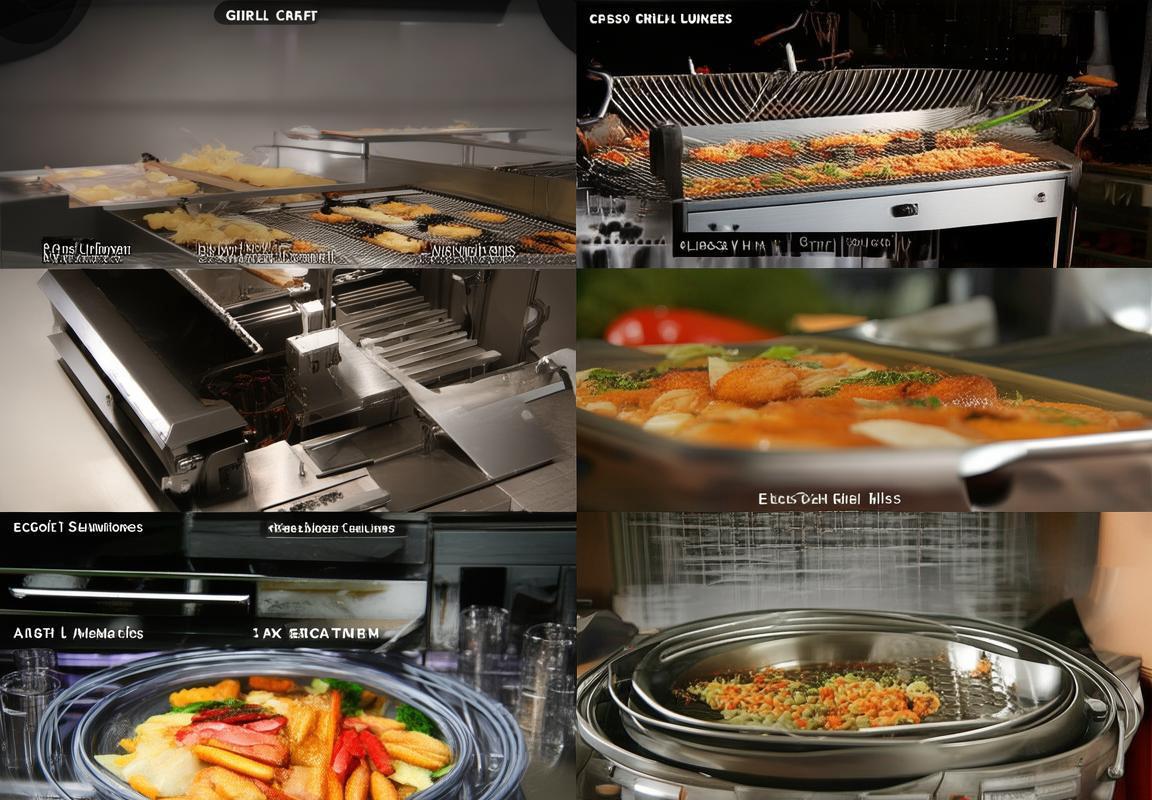
Future Outlook: Predictions for the Bespoke Contact Grill Market
In the ever-evolving landscape of the kitchen appliance industry, bespoke contact grill manufacturers are carving out a unique niche. These manufacturers specialize in crafting customized grills that cater to the specific needs and preferences of consumers. As we delve into the future, several predictions emerge that could shape the trajectory of the bespoke contact grill market.
-
Technological IntegrationThe integration of smart technology into bespoke contact grills is expected to become more prevalent. Features like temperature control, cooking time monitoring, and connectivity with smartphones are likely to become standard, offering users a seamless and personalized cooking experience.
-
Health and Wellness FocusWith a growing emphasis on health and wellness, bespoke contact grill manufacturers may see an increase in demand for models that offer healthier cooking options. This could include grills with non-stick surfaces that reduce the need for added fats, or those equipped with smokeless technology to minimize harmful emissions.
-
Customization on the RiseThe market for customized contact grills is poised to expand as consumers seek appliances that reflect their personal style and cooking habits. From unique designs to specialized features, the ability to tailor a grill to individual preferences is likely to become a significant selling point.
-
Sustainable PracticesAs environmental concerns grow, bespoke contact grill manufacturers may face increased pressure to adopt sustainable practices. This could involve sourcing materials from renewable resources, reducing packaging waste, and ensuring energy-efficient production processes.
-
Global Market ExpansionThe bespoke contact grill market is not confined to a single region. With the globalization of consumer tastes, manufacturers may find new opportunities in emerging markets. Adapting to local culinary preferences and regulations will be crucial for successful expansion.
-
Collaborations with Chefs and InfluencersTo enhance their market presence, bespoke contact grill manufacturers might collaborate with renowned chefs and influencers. These partnerships could help in promoting the brand’s commitment to quality and innovation, as well as in showcasing the versatility of their products.
-
Direct-to-Consumer SalesDirect-to-consumer (DTC) sales channels are expected to become more prevalent in the bespoke contact grill market. By selling directly to customers, manufacturers can gain valuable insights into consumer needs and preferences, allowing for more precise customization and better customer satisfaction.
-
Regulatory ComplianceWith the introduction of new regulations regarding food safety and appliance standards, bespoke contact grill manufacturers must stay informed and compliant. This could lead to increased costs and a need for rigorous quality control, but it also presents an opportunity to differentiate themselves as a trusted provider of high-quality products.
-
The Rise of Modular GrillsModular grills, which allow users to add or remove components to suit their cooking style, could become popular among bespoke manufacturers. This flexibility not only caters to a wider range of consumers but also opens up new avenues for customization and innovation.
-
Customized Service PackagesManufacturers may offer additional services to enhance the customer experience, such as professional installation, maintenance contracts, and cooking tutorials. These value-added services can create a stronger bond with customers and foster brand loyalty.
-
Increased Focus on SustainabilityAs consumers become more environmentally conscious, the demand for sustainable and eco-friendly grills is likely to grow. This could involve using recycled materials, energy-efficient designs, and promoting the longevity of the products through extended warranties.
-
Market DiversificationBespoke contact grill manufacturers may explore diversification into related markets, such as outdoor cooking equipment or multi-functional kitchen appliances, to expand their product portfolio and customer base.
In conclusion, the bespoke contact grill market is expected to see significant growth driven by technological advancements, a focus on health and wellness, and a demand for personalized products. As manufacturers navigate the challenges and opportunities ahead, they must remain adaptable and innovative to succeed in this dynamic and niche market.
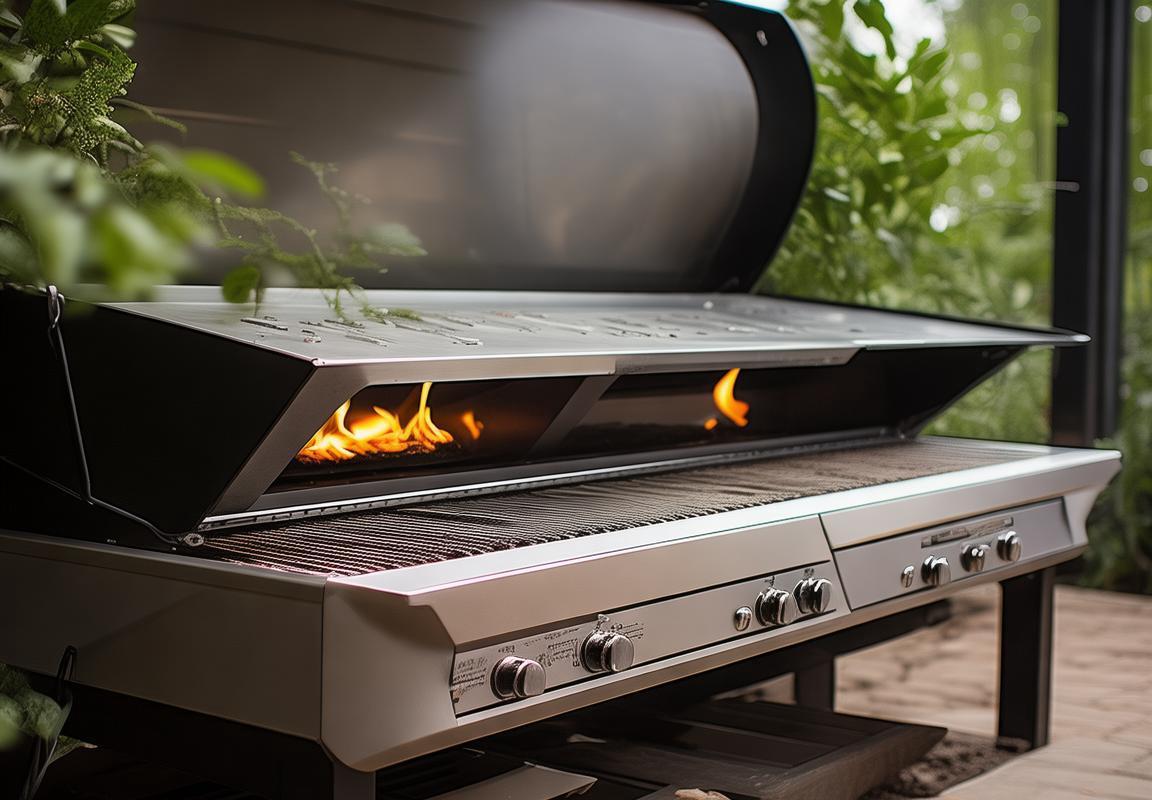
Conclusion
In reflecting on the bespoke contact grill market, it’s clear that the industry has evolved significantly, catering to a diverse array of consumer preferences and needs. From the rise of customization and personalization to the challenges of scaling bespoke operations, the path has been intricate and filled with both hurdles and opportunities.
Customization has become a cornerstone of the market, with consumers increasingly seeking products that align with their unique tastes and lifestyles. This shift has allowed bespoke manufacturers to carve out a niche by offering tailored solutions that can range from the type of grill plates to the specific heat settings. The ability to cater to these individual desires has not only expanded the market but has also created a loyal customer base that values the craftsmanship and uniqueness of their products.
However, the path to success in bespoke manufacturing is fraught with challenges. Production costs can be high due to the manual labor and intricate designs involved. Maintaining quality control while scaling operations is another significant hurdle. Yet, despite these challenges, the opportunity for growth remains substantial. As the market continues to expand, the demand for high-quality, customized products is expected to rise, potentially leading to a surge in the number of successful bespoke contact grill manufacturers.
One key factor that has influenced the market is the emphasis on health and wellness. With a growing number of consumers focusing on their diet and fitness, the appeal of contact grills that offer a healthier cooking alternative has surged. Bespoke manufacturers have been quick to capitalize on this trend by offering grills that are not only versatile but also promote healthier cooking methods.
The integration of technology has also played a pivotal role in shaping the market. Smart grills that can be controlled remotely or through smartphone apps have become increasingly popular. Bespoke manufacturers have the opportunity to lead in this area by creating custom grills with cutting-edge technology that not only enhances the cooking experience but also simplifies it.
As we look to the future, several predictions can be made. The bespoke contact grill market is expected to continue its upward trajectory, driven by a combination of factors. The increasing trend of individualization will likely persist, with consumers always seeking unique products that reflect their personal style. Additionally, as the global population grows and urbanization continues, the demand for compact and efficient kitchen appliances is likely to rise, providing an opportunity for bespoke manufacturers to innovate in this space.
Another trend to watch is the rise of eco-friendly and sustainable products. With environmental concerns at the forefront of many consumers’ minds, bespoke contact grill manufacturers that can offer sustainable and environmentally conscious designs may find a receptive market. This could involve using recycled materials, designing for longevity, or developing energy-efficient cooking solutions.
In conclusion, the bespoke contact grill market is a testament to the power of innovation and customer-centric design. It has shown that even in a highly competitive and rapidly evolving industry, there is room for niche players to thrive. The key for these manufacturers lies in balancing the art of customization with the science of scalable production, all while staying ahead of consumer trends and market demands. As the market continues to grow and evolve, it will be fascinating to see how bespoke contact grill manufacturers navigate the path ahead and continue to deliver products that not only meet but exceed customer expectations.